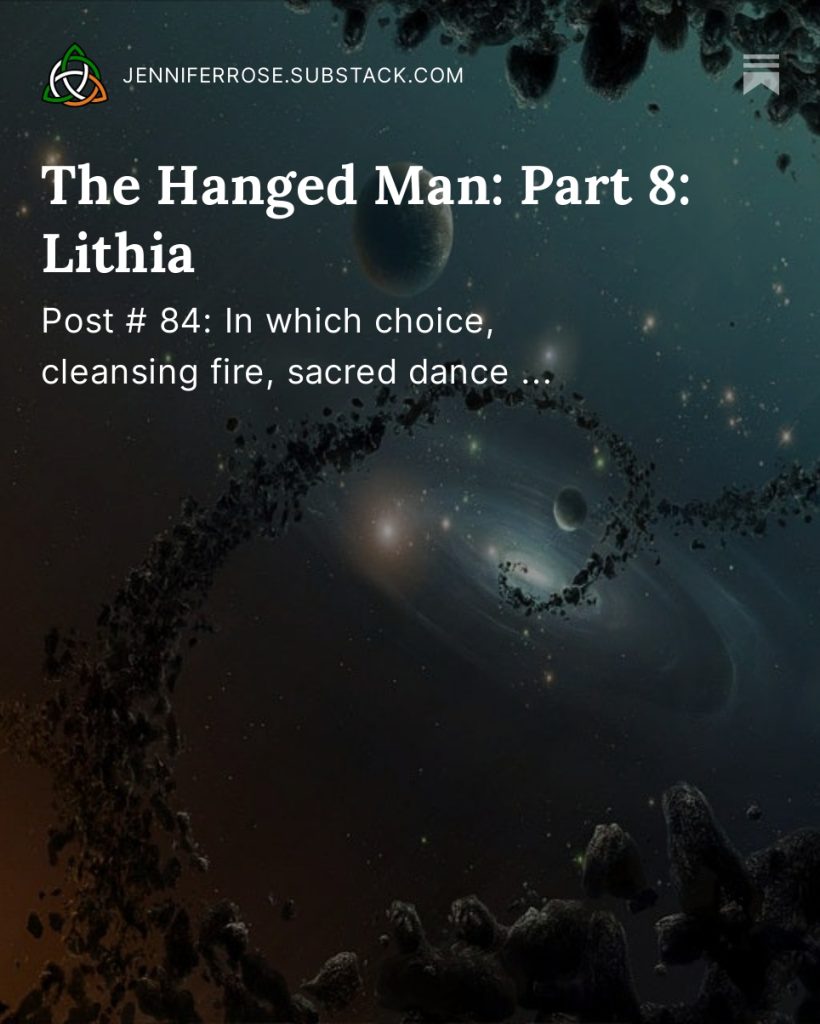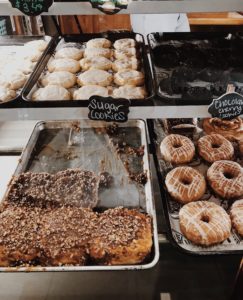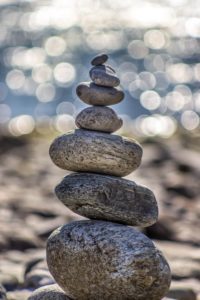by Jenny Rose | Sep 9, 2023 | Choice, Power
I’m a spinner, a speeder, a thought racer. (Yes, I know it doesn’t help. I know rocking chairs and hamster wheels go nowhere. I know worrying is pointless.) Under the right conditions, the inside of my brain is like a dusty attic filled with hysterical cats zooming in all directions, climbing the walls, knocking over piles of junk, filling the air with dust and yowls. Chaos. Destruction. I call it speeding. I call it anxiety. The world calls it racing thoughts.
Whatever we call it, it’s a miserable state of mind, and a common one.

Photo by Quino Al on Unsplash
Herding cats, as any cat lover will tell you, never works. Sheep, maybe. Cows. But not cats.
However, at times familiar life goes off the rails in such varied, complex, and unforeseen ways I find myself once again herding cats, usually during the hours I need to be sleeping, though sometimes those hours bleed over into days when I’m supposed to be focusing. On something productive or something relaxing or something. But all I’ve got are catapulting (pun intended) thoughts and emotions racing around in my brain.
Not long ago, before the start of my current cat rodeo, I read somewhere (probably Substack) about The Rule of 9s. I’ve since gone back to look for it, but I can’t find the original source. Anyway, I didn’t come up with it myself. I wish I had.
The Rule of 9s is a tool used to identify what really matters. Or, if you like to look at things bass-ackwards, like me, what really doesn’t matter.
This morning, for example. I could garden, work on business at my desk, write, or make a Spotify playlist. I have just under two hours at my disposal before I head off to work.
I have a lot of desk business just now as my brother and I (mostly my brother) wind up my recently deceased mother’s estate and deal with our inheritance. By inheritance, I mean not just assets, but the inevitable emotional inheritance we all receive from our families of origin. What I’ve heard is true. When a parent dies, we cannot be prepared for the ways it changes us and how uncomfortable some of that change is.
My metaphorical cats – these mixed up thoughts and feelings — pull me in different directions at the same time. Everything feels overwhelming right now. It’s irritating. Two items on my grocery list and I’m overwhelmed. Now and then I have a few minutes free from the inundation, but I get a call, a text, another document to sign, and I’m overwhelmed again.
Fortunately, I just learned The Rule of 9s.
So, the option of gardening. It’s hot outside. Really, really hot and humid. Just when the weather should be getting crisper and cooler, a heat wave has arrived. It will ease in the next couple of days, but it’s brought a resurgence of mosquitoes and it’s not fun to be outside. So, no garden this morning. I’ll wait for cooler weather. Is that a crisis?

Photo by Morgan Sessions on Unsplash
Will gardening or not gardening matter in 9 seconds? In 9 minutes? In 9 hours? In 9 days? In 9 months? It might start to matter then, because I’ll be making spring plans and whatever progress I make this fall will affect those plans. But it’s clearly not urgent. I won’t remember choosing or not choosing gardening today.
Business at my desk. I’ve already done some of that this morning. Balanced the checkbook. Looked for a document I’m waiting on from my bank (not there yet). Made some notes. Did some planning. Considered options. I have money in my account. All the bills are paid. I don’t need to spend anything today. Will taking care of more business or not taking care of more business matter in 9 seconds? Nine minutes? Nine hours? Nine days? It might start to matter at that point, as one thing leads to another as we wade through this process. If I stay on top of tasks, step by step, I know I’ll eventually come out of the tunnel with effective systems in place that work for me and respect my goals and values. Tempting to start herding the cats quivering on my desk, but I only have two hours and nothing is urgent.
Make a Spotify playlist. I may shortly have an opportunity to bring a dance program to the community. I’ve tried several times in years past without success, but I haven’t given up hope. Now that I’m on Spotify (though I have misgivings about how platforms like this fail to support artists), I wanted to get a few of my dance playlists put together. I have them burned onto CDs and in iTunes, but not on Spotify. However, I don’t have any solid dates for dance now. It’s all in the planning stages. At some point it will matter, but not right now.
Writing. It’s my weekend to publish on Harvesting Stones. I don’t have to. It’s not required. But I’d like to, if for no other reason than it’s my usual routine, a stepping stone in the current chaos, and it comforts me to be doing something normal. Not to mention how much I enjoy it. Hard to think about focusing on it, though. All those cats whizzing around …
Will writing or not writing matter in 9 seconds? Nine minutes? Nine hours? Nine days? It won’t matter to the world, but it matters to me. It will matter to me in two days, when Saturday morning comes and I either do or do not have a rough draft I’m happy with.
So I’m writing. And while I’m doing that, miraculously, the other cats settle down. Tired, I guess. Maybe they’ll curl up in the chaos they’ve wrought and sleep a while. Sleep is good.
As I live my life and listen to the inside of my head, especially the anxiety, the fear, the resistance, the catastrophizing, I pull out The Rule of 9s and apply it. Will this matter in 9 seconds? In other words, will I die in 9 seconds if I don’t do whatever-it-is or figure it out, completely and perfectly? How about in 9 hours? (Have you ever noticed how crazy your nighttime I-can’t-sleep thoughts are in the light of day?) In 9 days will I even remember whatever feels stressful this minute? Will the fearful thing I can imagine happening be important in 9 weeks? In 9 months? In 9 years?
The Rule of 9s requires I slow down and think. The questions give me perspective, help me with a reality check. I stop reacting and remember my power to choose. I decide what’s more important than my peace of mind (not much). Hysteria is contagious; so is calm.

Photo by Ryan Moreno on Unsplash
Applying The Rule of 9s settles the cats right down. One or two may still zoom, because cats are contrary like that, but the chaos diminishes as I become intentional and mindful. I can find some focus, at least for a few minutes. I know what to do next, in the next 9 seconds, anyway. The next 9 years can take care of themselves.
Questions:
- What are your strategies for pulling yourself out of racing thoughts and anxiety loops?
- How do you choose priorities?
- Is your experience one of choice in life, or one of reaction and compulsion?
- Share something ridiculous that’s kept you up at night.
Leave a comment below!
To read my fiction, serially published free every week, go here: 
by Jenny Rose | Nov 12, 2022 | Choice, Power
I’ve dedicated the last decade of my life to reclaiming my personal power, each step on the path made visible on this blog in the hopes that others might also find their way into a healthier, happier, more effective life.

Photo by Jon Flobrant on Unsplash
It’s been an extraordinary journey, one I hope will never end as long as I’m breathing.
At the heart of personal power is our ability to choose.
I’ve always been aware of how uncomfortable I am choosing for anyone other than myself. For years I wasn’t able to choose effectively for myself; nothing in me wanted the power to choose for others. Hand-in-hand with this part of my experience is an automatic, knee-jerk stubbornness and opposition to those who try to choose for me or anyone else. It’s been a longstanding family joke: Don’t tell me what to do!
I’ve never been friendly toward this kind of authority.
As a parent I was unwilling to take on the role of a policewoman. I wanted my sons, as teenagers, to use their excellent brains and make their own choices, then deal with their own consequences. As I raised them, it slowly dawned on me the choices I made as a mom, though I always believed they were in the best interests of my sons, might have been wrong for them. I began to realize how much time we all spend in frustration over what those around us should and shouldn’t do, including our kids. I decided to stop discussing what others should choose. I still noticed the commentary in my head, but I got better at not letting it out of my mouth.
One day, I looked at my eldest son, who was going through a bad patch, and heard myself say, “I want the best for you, but I don’t know what that is.” I recognized that was the truth, and felt humbled. It broke my heart to see him struggling and unhappy. I would have done anything to have “helped.” But I didn’t trust my motives. Of course I knew what I thought he should do, but was I looking for him to feel better or for him to make me feel better? I couldn’t be sure. I just wanted things to be better. Wanted it desperately, but I also wanted him to figure out how to help himself.

Photo by juan pablo rodriguez on Unsplash
I’m very aware of the word ‘should.’ I cut it out of my writing. I cut it out of my thoughts and speech. I’d even go so far as to say it’s a toxic word. I don’t apply it to myself and I don’t apply it to others. It never fails to appear when I’m arguing with what is or have otherwise stepped out of my own rightful power and am trying to control a situation that’s not mine to manage. It also shows up when I’m being mean to myself.
Now, suddenly, I find myself in a position of needing to make choices for a loved one who at this moment is not able to choose for themselves.
This is not like choice-making for my children. Kids are pretty resilient. I knew I would made mistakes as a parent, and I did. But I could always choose again. With small children, there’s a long future in which to reconsider, make new rules, learn in real time. I wasn’t uncomfortable with it. As they grew up, I gave them more and more power to choose for themselves and stepped back while they experienced the consequences of their choices.
Now they’re adults, and it’s harder. Now I really have nothing to say about their choices as men in the world. It’s not my business. Some of their choices are, to my mind, tragic and self-destructive, and I’m afraid for possible consequences. I’m afraid for my own pain and grief if some of those consequences occur. But I accept the only power I have is to love them and make sure they know it.
And making choices for an aging loved one is different again. The fear I’ll do it wrong is terrible. I’m working in a lifetime context where I never did do anything right, so I’m fighting that old dynamic every minute while I calmly go about gathering tools, resources and information. I know I’ll do my best and I’m confident in my own abilities and the strength of my love and intention, but choice is dynamic. It takes time to choose, observe outcomes, consider what could be better, and choose again.
I don’t know how much time I have. I don’t know how much time I want.
Working with a frail, injured, confused senior feels brittle. I may not have time to manage choice and outcome. Not only that, but when I choose for myself if I’m unhappy with the consequences I only have myself to blame; I bear all the outcomes, which is as it should be. But if we must choose for someone else, they must experience the consequences of our choice. And that’s a heavy burden for me. I feel enormous pressure to choose well, to not make anything worse, while at the same time I can’t see choices that will make anything much better.

Photo by roya ann miller on Unsplash
As I struggle with all this, mid-term elections have occurred and the final votes are being counted. The news is full of debate, discussion, and violence revolving around limiting choice and forcing “choice.” As always, I cannot get my head around people who think it’s okay to impose their ideology on others. I support freedom of personal choice (as long as it doesn’t harm others) in most circumstances. I wouldn’t impose my beliefs or choices on others. The idea is appalling. But I also don’t accept anyone has the right to restrict my access to vote or what I do with my reproductive ability. I refuse to comply with such imposition, even if it becomes law. You might as well arrest me right now.
A conversation recently took place at the pool facility where I work between a woman of child-bearing age and a male senior. She asked him why he thought it was okay for him to decide she couldn’t get an abortion when the choice was personal and had absolutely nothing to do with him. He said such a choice would hurt his feelings.
This drops my jaw. I don’t know whether to let rage catch my hair on fire or laugh. It hurts his feelings when people make choices incongruent with his belief system and ideology? Or it hurts his feelings when women are empowered? Or it hurts his feelings when he can’t control what others choose? Or he feels entitled to never have his feelings hurt?
Wow. Just wow.
Choice. It’s so easy to say to others, or to think, they should do this, or this, or the other. So easy. But I never wanted to run the world. I only wanted to be in charge of myself. Now a loved one needs me to be there for them, and I will be there every step of the way, giving it my best, just as I always have. But it’s not fun. I don’t want the power. I accept I’m the right one to have the power, but I never wanted it. How can I possibly know what’s best for another human being? How can any of us have the arrogance to think we know what’s best for everyone in every circumstance, let alone anyone in any circumstance? At times I can barely choose wisely for myself, let alone anyone else.
To read my fiction, serially published free every week, go here:
by Jenny Rose | Sep 11, 2022 | Choice, Power
Probably every child is told we all have to do things we don’t want to do.

Photo by Cristina Gottardi on Unsplash
Children are concrete, and I was no exception. When I heard we all have to do things we don’t want to do, I thought it meant that’s what life was supposed to be about, a kind of slavery to all those things we don’t want to do. No one talked to me about balance, or doing the things we do want to do.
It made life seem like an unhappy business, years and years of unending duty, responsibility, and doing what I didn’t want to do. No recess. Or maybe what I really wanted to do was bad and wrong? Maybe I should want to do what I didn’t want to do. I wasn’t sure. A part of me went underground. I didn’t want anyone to know how bad I was, how flawed. I worked hard at the things I didn’t want to do and hid the things I did want to do, in case they were wrong.
But I couldn’t conceal the feeling of wanting and not wanting from myself. I used to make hidey holes in whatever house we were living in at the time and go to ground with a book, but I always felt guilty. I wanted to read. Doing what I wanted to do was bad. I should have been helping my mom do all the things she didn’t want to do.
The pronouncement that we all have to do things we don’t want to do is stated as a Cosmic Truth, especially as an adult tells it to a child. It’s loaded with feelings and experience a child can’t possibly understand, but the subtext was clear to me:
Life is not much fun.
I can’t resist picking apart Cosmic Truths as an adult, and as I think about this one it occurs to me it really has to do with personal power more than wanting or not wanting. It’s not framed in terms of personal power because our emotional intelligence is so low. Making choices based on whether we want to do something or not is childish. Power resides in the act of choice, not in the wanting or not wanting.
Steering our lives solely by our desires is hedonism, a belief that satisfaction of desires is the purpose of life. Desire, though, is so shallow, so fleeting. And it’s never permanently satisfied. No matter how well and pleasurably we’ve eaten, we’ll be hungry again. Desire is a treadmill we can never get off.

This is not to say we shouldn’t ever choose something we want or say no to something we don’t want, but our desire is easily manipulated. That’s why advertising works. If we can be easily manipulated, we’re not standing in our power. Addiction is based, at least in the beginning, on wanting and not wanting.
A more useful question than What do I want to do? is What would be the most powerful thing to do? We might want to eat a carton of ice cream, but a walk feeds our health, well-being, and thus personal power much better. After all, one carton of ice cream leads nowhere but to another. Personal power can lead us to joy and experience a carton of ice cream never dreamed of.
- If we don’t choose to do difficult, frightening, or new things, we’ll never grow.
- If we don’t choose to take care of our bodies, they won’t function well.
- If we don’t choose to be self-sufficient and resilient, we’ll be dependent.
- If we don’t choose to learn anything, we’ll remain ignorant.
- If we don’t choose to plan ahead, prepare, or manage consequences, we diminish our choices, waste resource, and weaken the contribution we’re capable of making.
- If we don’t choose the responsibility of commitment and making choices, someone else will make our choices for us.
And so on.
I’m changing the frame. I’m less interested in what I want and what I don’t want and more interested in how my choices affect my power, and the power of those around me. I’m willing to do what I don’t want to do if it’s a step on a road leading to integrity, power, healthy relationship, or anything else important to me. At the same time, I can exercise my right to say no to things that won’t take me where I want to go.
It’s about power, not desire. Any three-year-old can want and not want. It takes an adult to manage a healthy balance of personal power.

Photo by Deniz Altindas on Unsplash
by Jenny Rose | Mar 19, 2022 | Choice, Power
I subscribe to a Substack newsletter for writers by Lani Diane Rich. A few weeks ago, she wrote about being bad. On purpose. It made me laugh.

Photo by 小胖 车 on Unsplash
I’m one of those people who has a recording angel at my shoulder, busily writing down every single less-than-perfect thing I think, say, or do. It’s a full-time job.
The idea of being bad – on purpose! – caught my attention.
Well, maybe not on purpose. Maybe just living in such a way that “bad” and “good” don’t enter into … anything.
But then again, maybe on purpose. Maybe writing badly, acting badly, cleaning a dish badly, or eating a whole pizza and letting the grease run down my chin without regret or guilt on purpose.
My horror at the idea (not about the pizza, though) makes me giggle.
This writer makes a great point. Doing things badly, in general, will result in negative feedback of one kind or another. But so does doing things well. In fact, sometimes doing things well results in more negative feedback than doing them badly! Then there’s always the average middle ground: doing things well enough to get by, thereby avoiding attention for being really good or really bad.
Ugh. I’d rather be bad than fit myself into average if I can’t manage good.
How many times in my life have I thought or said, “I’m doing the best I can”?
Hundreds. Thousands. Hundreds of thousands.
Why is it my job to do the best I can?
It used to be my job because I had to justify my existence. However, I’ve outgrown that mindset now and I can’t take it very seriously. I don’t have to justify my existence anymore.
I also did it to stay safe and get loved.

Photo by Laercio Cavalcanti on Unsplash
It didn’t work.
I do it to make a deal with the Universe. I’ll do this thing as best I can if you’ll make sure I’m OK.
Hard to say if that’s effective. I’ve always been OK, but I might have been without killing myself trying to be good.
I do it to prepare for failure. I’ll try as hard as I can, and if (when) I fail, at least I’ll know I gave it my best.
Failure and success. I’ve redefined those. I haven’t always gotten the success I’ve wanted, but that doesn’t mean I’ve failed. In fact, some of my most stunning missteps and miscalculations have turned out to be life-changing gifts.
In the end, I have one good reason for being good, and that has to do with my own integrity. It’s important to me to know I’m doing the best I can in everything I do. I don’t expect praise or rewards. I’ve learned (sadly) it’s no guarantee my needs will be met. I know better than to expect reciprocity or appreciation.
It’s simply who I choose to be in the world.
But here’s a question: are “bad” and “good” mutually exclusive? Would I be more flexible, more creative, healthier, happier, and more whole if I could be bad as well as good? Is there unexplored territory in badness? Could the ability to choose to be bad be part of being good?
Huh.
Could I choose to be some degree of bad along with good?
Being skilled, productive, effective, useful, kind, reliable, honest, etc., etc. all the time takes a lot of energy.
A lot of energy.
When we’re kids, we’re taught good things come to people who are good.
It would be nice if life was that easy.
I can’t help but notice while I’m doing my best from dawn to dusk some other people are not. Other people are sloppy and lazy and careless and they’re not struck down dead by a celestial lightning bolt.
A little voice in my head says that’s all the more reason I have to be continually good, to pick up the slack the fuck-it-I-don’t-care people leave.
Bullshit. I’m not the Cosmic Miss Fix-It.
Maybe it’s okay to think about taking a break from the job of being “so goddamn excellent all the time,” in Lani’s words.
Everyone needs a day off now and then. A lunch break. A vacation. Maybe I’ve worked too much overtime being excellent. Maybe I’ve lost my work-life balance.
Maybe.

By Sean Stratton on Unsplash
by Jenny Rose | Feb 26, 2022 | Choice, Power
We are paradoxically stuck in the process of moving. Sometimes I feel we’ll never stop moving, and we’ve never done anything except slog through moving. Not true, of course. It’s only been about 4 months.

Photo by Michal Balog on Unsplash
One of the fun things about moving, for me, is creating a new home. Rearranging possessions and furniture. Making new mental maps of space and how to navigate from the bedroom to the bathroom to the kitchen. I’m looking forward to that, but every day it feels farther ahead in an unobtainable future.
I’m figuring out strategies to help myself through this.
Right now, I’m metaphorically rearranging my mental furniture.
Most people arrange their living rooms around the focal point of a screen. It’s funny to think that’s only been true for the last 100 years or so. I would hardly know what to do with a living room that does not contain a screen.
Currently, my mental and emotional living room is overwhelmed by a big screen on which the reality show Moving is endlessly and relentlessly playing. Attached to the screen, of course, are a sound system, remote controls, and all kinds of additional tech and equipment. Beside the screen is a neon calendar counting down the weeks to yet another closing date (our fourth), and along the bottom of the screen a continuous feed of rising interest rates and costs for everything from cat food (if you can find it) to heating oil. I don’t have room to breathe. I can’t escape the noise. I can’t pull my attention away. I feel imprisoned and disempowered.
I want it to be over, to turn it off, to turn away, to think about something else.
I have hot, red fantasies of sledge hammers and the sound of smashing glass. (This is an old fantasy. I am a secret wannabe serial TV screen murderer. Turn off the effing TV!)

Photo by Frank Okay on Unsplash
I can’t do much about the fact that the only sheets I still have unpacked are flannel, boxes are stacked to the ceiling in one room, another room is filled with empty boxes, tape, packing material, markers, and objects waiting for the right sized container. I’m not going to start unpacking because the weeks are dragging on.
But I can do something about my internal landscape, and I have got to get that screen out of my living room! Turning it off is not enough. It has to go, along with the sound system, remote controls, calendar, and scrolling rising interest rates.
I decided, a few days ago, to Stop Caring. Just stop. At least, Stop Caring so much.
I did Stop Caring for a day or two. A friend asked me what I did over the weekend, as she knew I was going to Stop Caring about Moving. I told her I worried about not caring, and she laughed. Will I stay stuck forever if I don’t Care? Am I supposed to Care? Is Caring some integral part of the process? Is something wrong with me if I Stop Caring? Am I abandoning or betraying the cause? Am I giving up?
I know. It’s ridiculous. But all you worriers understand. I know you do!
Anyway, I realized after I Stopped Caring I was feeling depressed. And I asked myself, is not Caring the same as sinking into apathy and depression?
Well, if so, that’s not good. That’s not what I want, either.
It was a relief to Stop Caring for a while. But I don’t want to Stop Caring about everything. I mean, I still have work to do, and people to love, and words to write, and the cats to enjoy. I still want to listen to music and light candles and exercise. I still want to read, and laugh, and hang out with friends.
What I want is to push back against the feeling nothing matters except Moving, that there is no life until we’ve successfully made this transition. I don’t want to watch the clock, watch the calendar, watch my email, watch the interest rates, worry about contracts, and think about all the places and ways I have no power in this process. I want to Stop Caring about all that.
I have to decide what to care about and what not to care about, and then I have to be constantly present with where my attention is and disciplined about redirecting it.
Oh, good. Just what I need. More work.
If we don’t arrange our living room around a screen, how do we use that space? What can I look at instead of the screen?

Photo by Pop & Zebra on Unsplash
A window and the world beyond it. The weather. The sky. The light. Birds and trees and all the other life responding to spring, feeling the call of mating, foraging for food, living their lives as temperatures moderate and the light strengthens.
A bookcase. If you don’t love books, this makes no sense to you. If you’re a bibliophile, I needn’t say more.
A fireplace, or hearth, or stove. A source of warmth, light, alchemy, primal comfort.
A piece of art.
A spiritual altar; maybe something as simple as a candle.
And so on.
The point is I have a choice about where my attention is and what I care about. Clock and calendar watching are not effective or useful. Neither is obsessing over the interest rate or compulsively checking my email and the latest real estate listings. In fact, those activities add to my stress and make time slow down. Far better to Stop Caring about the clock and calendar, shut the computer, and channel my Caring into enjoyable things, creative things, small tasks and pleasures anchoring me to everyday life right here, right now, in the pre-spring season in central Maine.
The places in which I have power deserve my Caring and attention. They deserve my effort and presence. I don’t need to squander my love and Care in places where it’s neither effective nor appreciated.
It’s my living room, and I’m choosing what’s in it.
Get the sledgehammer.

Photo by Josh Applegate on Unsplash
by Jenny Rose | Feb 5, 2022 | Choice, Power
I’m doing it again. Dissenting. Doubting. Questioning the status quo. Looking for new or buried information.
Thinking critically, in other words.
I know unthinking conformity is convenient, but I’ve always been an inconvenient sort of person.
It’s lonely.
This time it’s about diet, and fat, and cholesterol.
I’ve written several posts on this subject before. Here’s the first one.

Photo by Lukas Budimaier on Unsplash
I know it’s all wrong to eat meat and animal fat and stay away from plant-based food of any kind, but it solved my health problems.
I’ve had a lot of bad experience with doctors. For much of my life, I’ve been completely intimidated by doctors or anyone else in authority, especially men. I’m not afraid of blood draws and exams, but unable to speak up for myself, ask questions, or dare to Fail To Please in any way. Which means in and out of the office as fast as possible, making no fuss, not speaking except to answer questions succinctly, never disagreeing, and thanking the doctor extravagantly for their time and trouble, even if (especially if) I felt completely unseen, unheard and unsupported.
(Oh, and desperately minimizing any problems I do have so as not to be a whiner or come across as drug- or attention-seeking. Because it’s bad to need help.)
In short, fawning from the beginning of the appointment to the end.
This experience has meant I avoid health care, aside from well-woman exams and an occasional emergency visit for antibiotics or an injury.
When I have been to the doctor for things like chronic pain, insomnia, depression, and anxiety, I’ve been offered medication rather than information. I don’t want to take long-term medication. I want someone to help me understand what the underlying problem is, not slap a band-aid on it. That means I want to exchange information, which takes time, and ask questions. I want to be given resources and options.
Here in Maine I’ve found a health care provider I like and respect. She’s intelligent, personable, and doesn’t make me feel as though I’m nothing but a nuisance. With her help, I’ve caught up on all appropriate scans, screens, and tests. It’s nice to feel empowered to take care of my own health.
However, part of screenings and tests for women my age have to do with identifying risks for cardiovascular disease, and according to current standards of care I am at risk, solely because of my diet and cholesterol panel.
Current guidelines and standards are built on the longstanding lipid hypothesis, which states diets high in animal fats lead to atherosclerosis, which leads to heart disease. Other, equally longstanding evidence-based data from around the world over a span of decades suggests the opposite, not only that cholesterol is not an indicator of heart disease, but it’s actually protective against it, especially for women. Many doctors, Ph.Ds, and biochemists believe the lipid hypothesis is false and based on a severely flawed original study, which means all the current guidelines (diet and nutrition recommendations and pharmacology to reduce cholesterol) and standards of care built upon it are ineffective, at best. This is validated by staggering and rising rates of obesity, diabetes, heart disease, and other health problems in the American public since the lipid hypothesis began to change diet and nutrition guidelines, food production, and medical care in the 1950s.

Photo by freestocks.org on Unsplash
However, the lipid hypothesis is enormously lucrative for Big Ag, Big Pharma, and food producers, and those entities have frightening wealth and political power, more than enough to successfully stifle any funding for unbiased studies, silence independent scientists researching diet, fat, and cholesterol, and corrupt or bury any data that does not support the lipid hypothesis.
I am not getting my information from Facebook or conspiracy theories. I’ve spent years researching and reading, both in books and online, about diet, fat, and cholesterol. I don’t take the position that current cardiovascular guidelines are wrong, but neither am I convinced they’re right. I don’t know, and I know I don’t know, but the evidence tells me there’s plenty of room for doubt. My experience tells me a high-fat, low-to-no-carb diet is the key to my own health.
I want to have a discussion about it with my healthcare provider. I want to talk about studies. I want to ask questions. I want to be allowed to have doubts and concerns. I want to weigh my overall excellent health and function against numbers that may or may not have much to do with heart disease. I want to share links and be given suggestions for research.
I want to consider the possibility that current standards of care are based on a hypothesis that is incorrect.
I scheduled a phone call to discuss some of my test results. My provider expressed her concern about one particular result and thanked me for an email I had sent her, containing several links and information sources I find useful and interesting.
She was polite. I was polite. But our previously warm and friendly connection had vanished. I don’t believe she read anything I sent. I asked a couple of questions about studies and different ways to assess cholesterol panel results, but she dismissed it all. Flat. Businesslike. Professional.
It was a disappointingly brief conversation. I was clear about what I would and would not do. We came up with a plan. We hung up.
I spent the rest of the day feeling like an extremely anxious, difficult, bad child, waiting for catastrophe because I Failed To Please.

Photo by Ashkan Forouzani on Unsplash
All healthcare workers are under the gun these days. I work in a hospital myself, and come in for my share of politically-motivated bullshit regarding COVID. Healthcare providers are understandably exhausted, burned out, and defensive. I’m probably just one more patient influenced by some crazy ideology on the web, as far as my provider is concerned. She has a standard of care to adhere to that’s clean, clear, and congruent with the organization’s policies and procedures, which are congruent with the American Heart Association and all the other powerful medical organizations’ guidelines. She doesn’t have the time or energy to debate with patients about vaccines, dietary fat and cholesterol, or anything else.
But what if current cardiovascular preventive care is based on bad data? What if the truth has been buried under politics and capitalism for decades? What if I feel in the best health of my life because I am in the best health of my life, and nothing’s wrong, nothing needs fixing?
I don’t want to suffer from heart disease, cancer, or other health problems any more than anyone else does. I value my good health and work hard to eat right and stay fit. I want to learn about my own metabolism and physiology. I don’t want pharmacological fixes for issues that might not even be real problems.
I feel sad and frustrated and very alone. I’m feel as though I’m being punished for being a sceptic, and researching and thinking for myself. I’m back in the familiar pattern of asking questions and having people shut down, or withdraw and withhold.
I suppose at the end of the day we all wind up with ourselves and the best choices we can make with the information and resources we have. I know what the right thing is to do for myself at this point. I might get new information. Things might change. I might make a mistake, or be wrong, and suffer consequences. I’m prepared for all that. Things change. I can change with them.
This time I’m not blaming myself for the way I feel. This time I’m seriously considering the possibility that I’m not broken, but our healthcare system is. I’ll continue to take responsibility for my own health and well-being. I’ll continue to read and research as new data and studies become available for review. I’ll continue to doubt, dissent, question, and seek information.
I cannot blindly follow an organization, a system, or a set of expectations and rules from anyone. Data can be and is misinterpreted. It can be frankly corrupted by politics and capitalism. Much of what I’ve learned in my life I’ve had to unlearn and replace with something more effective. I’ve never been able to understand why we are so resistant to being wrong. How can we ever learn if we can’t be wrong? How can we ever go forward and build on our experience and observations? How can we ever hope to improve anything?
So here I am, skeptical again, and paying the price for it. But I’m going to stay on my side and continue to support my healthcare choices, even if I can’t find professional support. I’m not going to fawn, or let my fear chose for me, or apologize for who I am. I’m going to exercise my power to say yes and no, think critically, and advocate for myself, regardless of the expectations of others.

Photo by Tanja Heffner on Unsplash





















